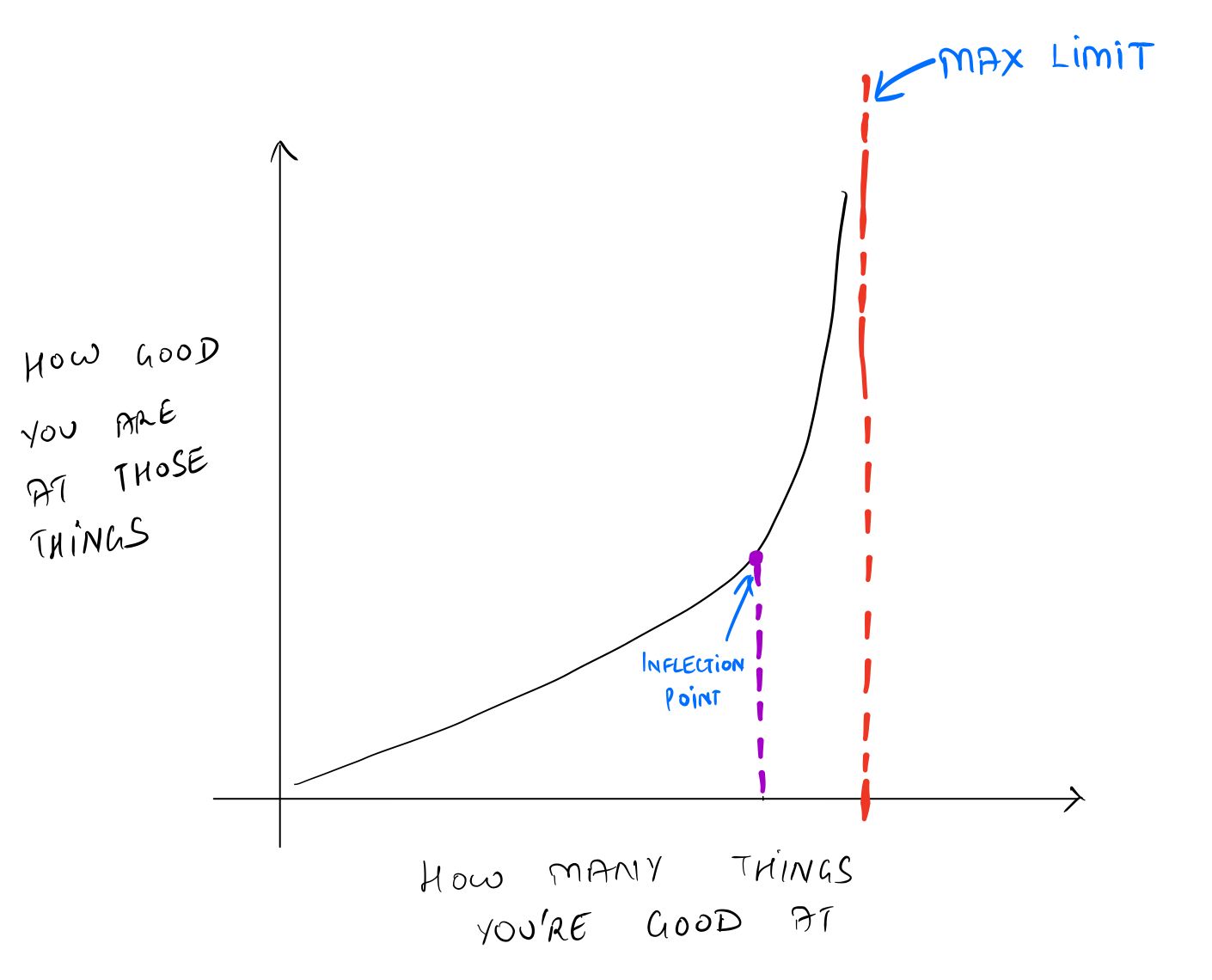Goals, Interests, and Greatness
On having long-term goals with many interests
Hey everybody,
This week, I want to share some of my notes — and thoughts — from a 2-hour chat with my new friend, Linus (check out his work here and subscribe to his newsletter too.)
On Goals
- It’s better to have long-term goals (e.g. yearly goals) rather than short-term ones (e.g. quarterly goals.)
- With long-term goals, you overcome inertia to make progress, but with short-term goals, you end up chasing numbers or metrics, which affect your happiness.
- Choose ‘input-based goals,’ not ‘output-based goals.’ Say that “I want to apply to 50 conferences,” not that “I want to get into 5 conferences.” Focusing on inputs instead of outputs help you grow non-linearly.
- Have buffer in your goals. If you choose 10 yearly goals, it’s okay to reach 6 or 7 of them. A 70% completion rate for well-thought-out, meaningful goals is far more valuable than a 100% completion rate for meaningless numbers. (See Linus’s goals here.)
On Problems
- There are two kinds of people at Y Combinator — those who want to start a company and those who want to solve a problem. (Be the latter.)
- This related to the ‘input-based goals’ idea.
On Greatness
- Most of the time, achieving greatness in its American capitalism sense (think Jobs, Musk, Gates) is orthogonal to ‘how you feel about your life.’ Chances are, the more great you are, the more miserable you will be.
- Regardless, though, you can still feel high or low in both cases (when you are great vs when you’re not.)
On multiple interests
- We always overestimate how good people are at ‘one main thing’ and underestimate how bad they are at other ‘side things.’
- Everyone is naturally predisposed to doing many things. This idea of having one career in one industry and be part of one workforce is a totally ‘made-up’ idea.
- See this graph. It’s better to start off with doing many things, build different mental models, and gather knowledge from different domains. Then, at some point, you should trade off doing many things for getting better at few. (Yes, this is obvious, but the graph puts it clearly.)

I asked Linus other questions as well, and we connected on many different things. I will those insights in a Twitter thread or even write another edition on it.
Until next time,
Abhinav
The Channel
The 80-20 Rule for Consuming Content
In this video, I talk about the Pareto Principle for absorbing and processing content, so that it becomes more useful in our lives.
The Elephant Queen
I absolutely recommend watching The Elephant Queen on AppleTV+ — another transformational movie. Here’s the trailer.
Few Podcasts I’d recommend
The Tim Ferris Show is a great place to start with, if you’d want to learn about anyone. I listened to quite a few this week. The best ones are here:
- How Seth Godin Manages His Life — Rules, Principles, and Obsessions
- Jason Fried — How to Live Life on Your Own Terms
Seth Godin is an absolute genius, and I highly recommend checking out Akimbo and Seth’s blog here. (It’s bound to change your life in many meaningful ways.)
Few Articles I loved
- Visualize the world’s population in 3D here. (I loved reading this post, and still wonder how this is free!)
- This article from Linus is absolutely amazing. It’s called ‘Build tools around workflows, not workflows around tools’
- If you’re looking for book recommendations anytime, start here: Venkatesh Rao’s reading list.